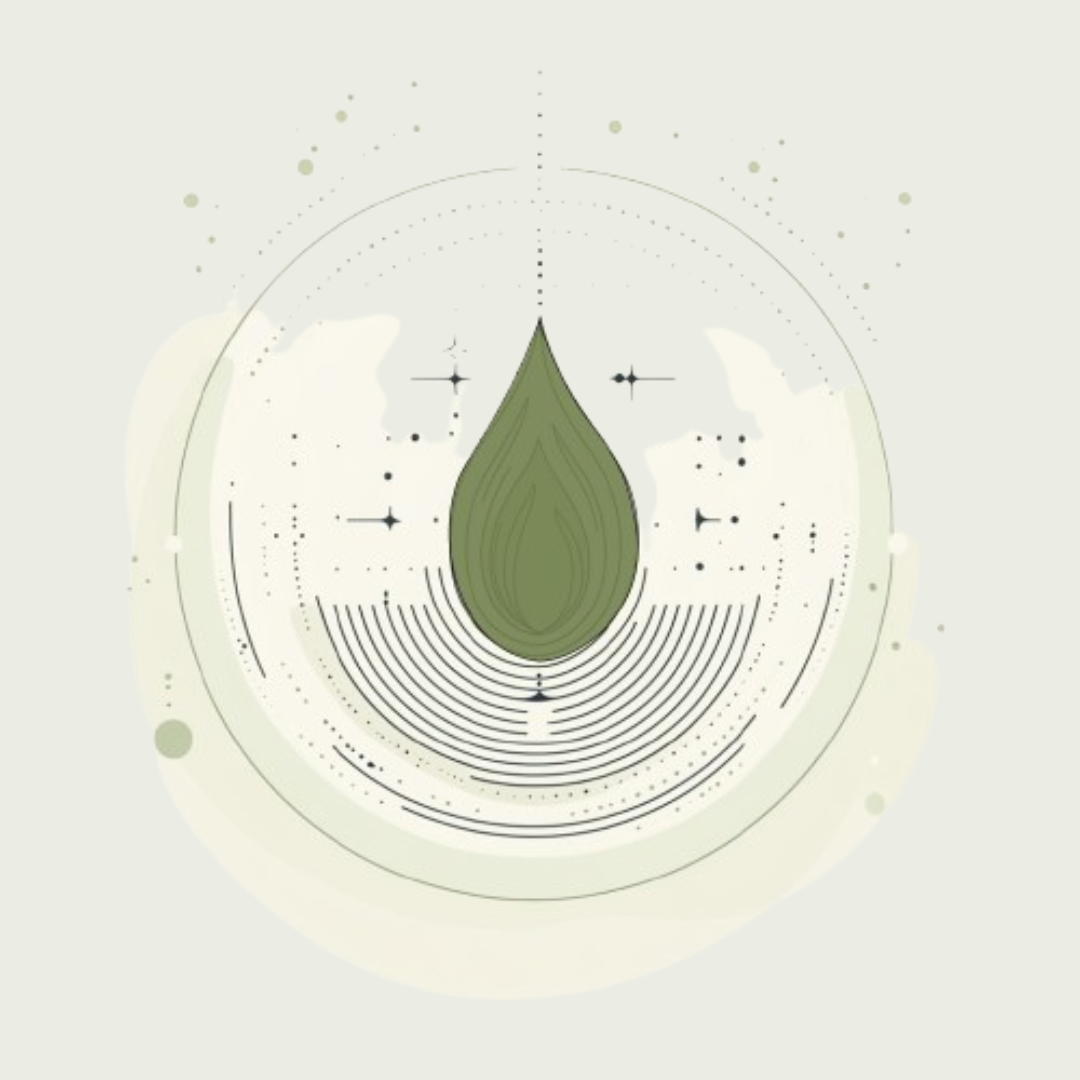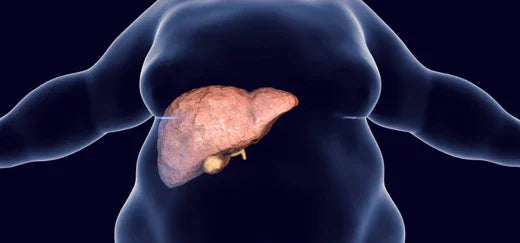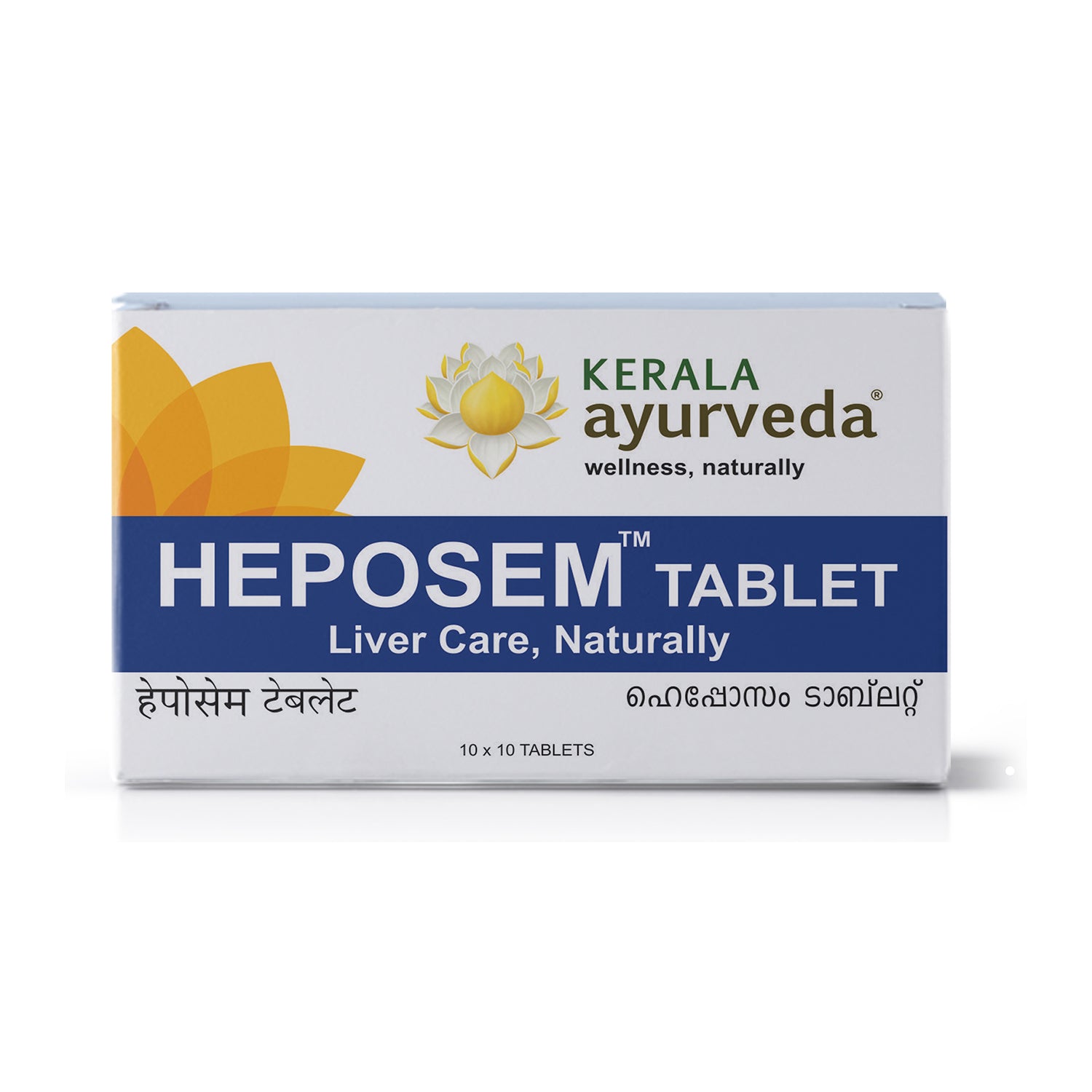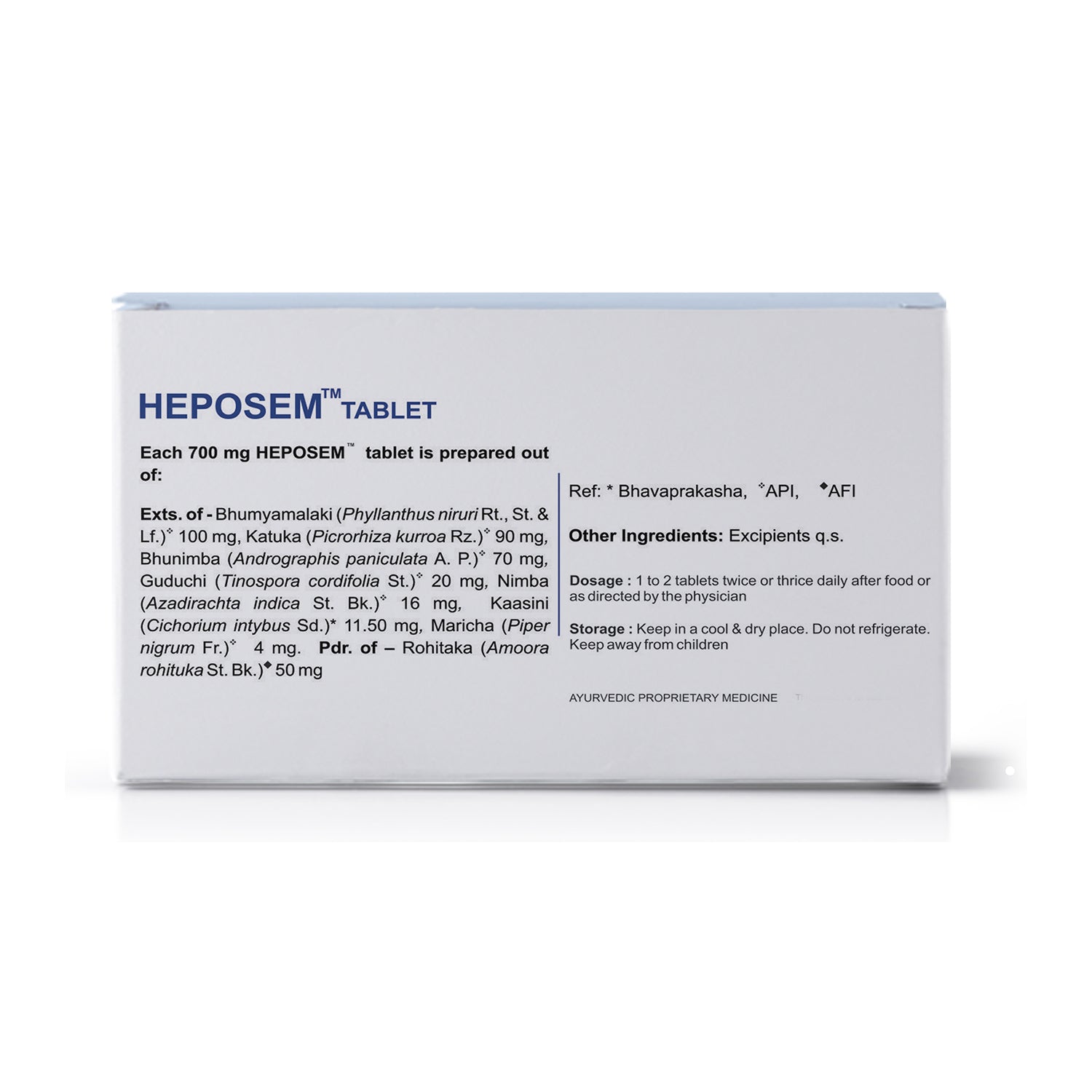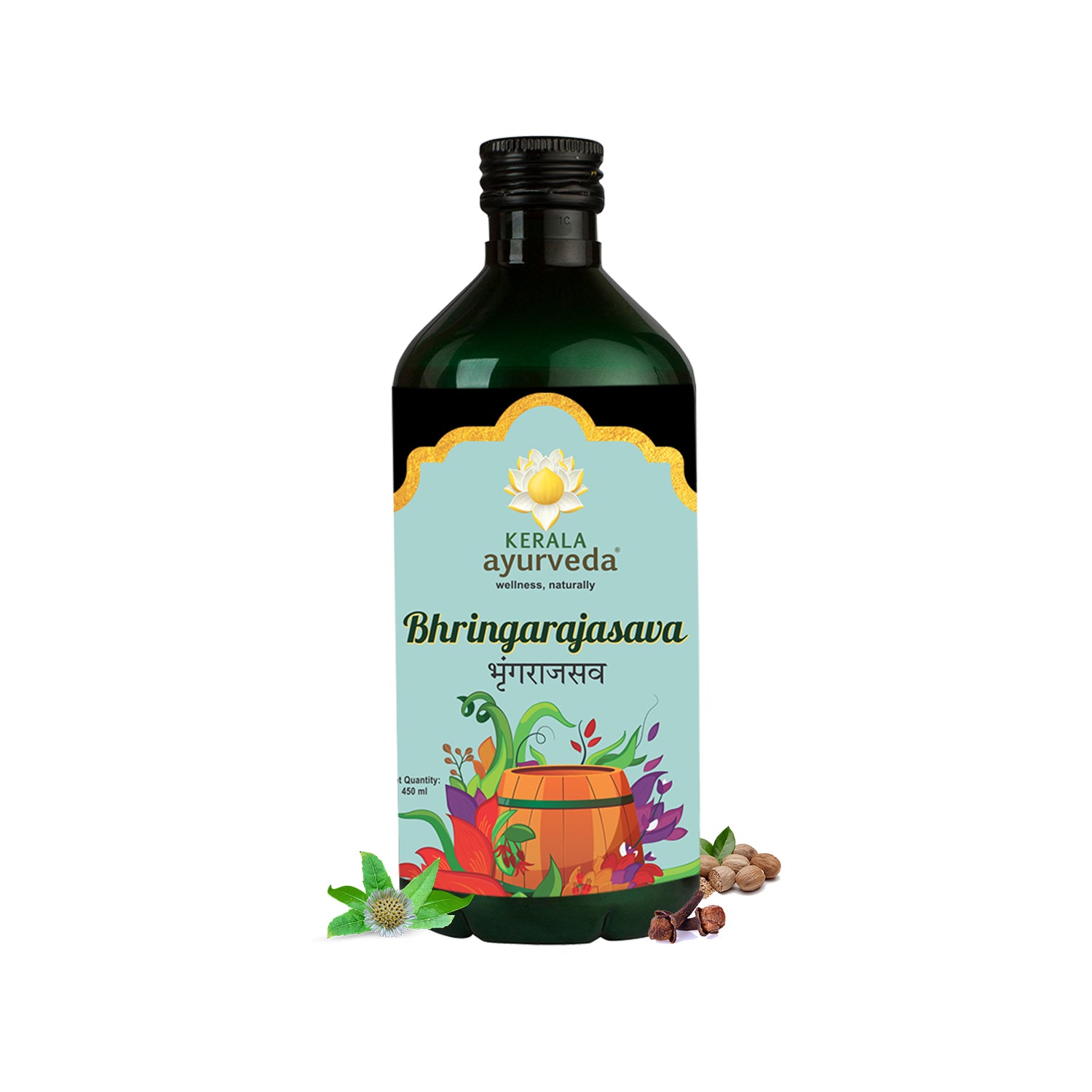Highlights
Excess fat cells accumulating in the liver lead to a fatty liver disorder. Although it’s a curable disease, it may deteriorate over time because of negligence and lack of proper treatment. Fatty liver is associated with overindulgence in alcohol and similar intoxicating substances.
Fatty Liver Disease or FLD occurs when liver cells keep an abnormally exorbitant amount of lipids, leading to liver inflammation and increasing the risk of hepatitis.
FLD impairs the liver’s natural ability to mobilize and eliminate fat from the body, eventually creating a vicious cycle of cause and effect.
Since alcohol consumption is a bigger cause contributing to FLD than all other factors combined, the disease is mainly classified into two types: Alcoholic steatosis and Nonalcoholic steatosis.
While non-alcoholic fatty liver disease impairs the liver’s normal functioning, alcoholic fatty liver disease is characterized by certain symptoms, including but not limited to jaundice, fever, spider veins, and abnormally high WBC count.
Types of Fatty Liver Disease.
Alcoholic Fatty Liver : Alcohol-related liver Disease (ALD), in most cases, is subsidised by controlling alcohol intake. But if left untreated, it progresses to :
-
Alcoholic Fatty Liver.
This is the first stage of Alcoholic Liver Disease. Chronic alcohol abuse and overintake of alcohol for a short period also result in an Alcoholic Fatty Liver. It occurs from fat accumulation and toxin buildup within the Liver. This is a reversible condition and can be improved by stopping the alcohol consumption. There are no specific symptoms at this stage of the disease either.
-
Alcoholic hepatitis.
This is the second stage of Alcoholic Liver Disease. Chronic alcoholism is the primary etiological factor, and it is unrelated to infectious hepatitis. If left untreated, the condition can progress to severe hepatitis and cirrhosis.
-
Alcoholic cirrhosis.
Alcoholic cirrhosis is caused by severe scarring of liver cells. This condition is generally not reversible nor completely treatable. However, the life expectancy can be increased by controlling alcohol intake.
Non-Alcoholic Fatty Liver Disease : (NAFLD).
Several factors cause NAFLD, and can also occur due to various infections. There are four stages to Non-alcoholic Fatty Liver Disease.
-
Simple Fatty Liver.
This is the standard type of condition the majority of people with NAFLD are diagnosed with. Simple Fatty Liver means that, just like the name denotes, you have fat in your Liver but not to the extent that it damages your liver cells or leads to inflammatory conditions. Simple Fatty liver doesn't produce further complications with time.
-
Non-alcoholic Steatohepatitis (NASH) NASH :
This stage of NAFLD includes hepatic inflammation and cellular damage. Inflammation of the Liver, in turn, leads to fibrosis and cirrhosis of the Liver, which are progressive stages of the disease. Hence, a liver transplant is recommended if such a possibility is detected.
-
Fibrosis.
Fibrosis occurs due to persistent scarring in hepatic tissues and surrounding blood vessels. It is still possible to reverse the damage and prevent further disease progression if we successfully remove the cause of inflammation. If left untreated, the scar tissue begins to replace normal functional hepatic cells, thereby progressing to the next stage, which is Non-alcoholic liver cirrhosis.
-
Cirrhosis.
Cirrhosis is the last stage of NALD, with yellowing of eyes and the skin alongside persistent dull aches of the abdomen. The widespread scar tissue of the Liver is difficult to cure or remove at this stage, but further progression of the disease could be paused by eliminating the root cause for inflammatory damage.
Ayurvedic View on Fatty Liver
According to Ayurveda, the liver is the origin of one of the principal energies known as pitta. Pitta has hot and light characteristics and handles metabolic and biochemical functions that produce energy and heat. Kapha has a cold and stabilized nature. When Kapha dosha rises above normal levels, it suppresses pitta and its function in supporting the liver. Therefore, it can be inferred from this correlation that fatty liver disease results from elevated Kapha dosha.
Causes of Fatty Liver Disease
There’s no concrete evidence on why some people are prone to fatty liver diseases and others are not. However, several studies have established a link between underlying health conditions and FLDs. Let’s look at some of the leading causes of fatty liver.
Obesity
Obesity is one of the significant factors for FLD and other health complications. Obesity is more than just putting on extra weight. It also means that your body’s fat-muscle ratio is blowing out of proportion and putting more strain on your bones than they can handle. As a result, the tendency to move and exercise reduces significantly, leading to a slew of health conditions. The risk of FLD further increases with an excess fat build-up in the abdomen.
Type 2 Diabetes
As we all know, diabetes affects natural insulin levels in your body, but it also appears to promote fat accumulation in the liver. This may lead to inflammation or scar tissue build-up in the liver.
Type 2 Diabetes becomes a reason for the development of Non-alcoholic Fatty Liver Disease. The fat accumulation in the body of diabetic patients paves the way for obesity and overweight, which is one of the many etiological factors of fatty liver. In addition, if diabetic patients are associated with high fructose consumption, increased cholesterol levels, and Blood pressure, all of it can add to the slow progression of fatty liver in them.
Alcohol Consumption
People who consume excessive alcohol are far more likely to develop fatty liver disease than those who don’t. Alcohol affects the normal functioning of the liver, especially its ability to metabolize fat. Failing to eliminate excess fat from liver cells results in fatty liver diseases and other complications that may crop up in the following weeks.
After the brain, the Liver is known as the most complex organ of the human body. Liver performs functions such as blood detoxification, biliary production and bilirubin metabolism. The liver is also a self-regenerating organ. Hence, chronic alcohol abuse leads to the death of hepatic cells, which eventually affects the ability of the Liver to regenerate and carry out its detoxifying functions. In this way, toxins and fat deposition increase the chances of liver failure and lead to conditions like cirrhosis in the end with time.
High Triglycerides Levels
High triglycerides circulating in the blood can lead to fat accumulation in the liver. This is one of the significant factors for non-alcoholic fatty liver disease.
Triglycerides are fat molecules that stream through blood and are the main sources of energy within the body. They are synthesised from the food we eat, and in cases of low-fat levels in the body, your liver synthesises them. In instances of overconsumption of foods, the liver stores the fat as triglycerides. Depending on the diet, alcohol habits, genetics, tobacco usage and lack of physical exercise, the level of triglycerides fluctuates, and an elevated range is what triggers fatty liver.
Symptoms of Fatty Liver Disease
Abdominal Pain
Abdominal pain could be indicative of several health conditions. And can occur because of multiple reasons. Still, if it persists for days, it could be one of the fatty liver symptoms. The sooner you get a diagnosis, the better.
The abdominal pain experienced in fatty liver is explained as dull and, most importantly, persistent. Felt around the upper right part of the abdomen. Pain could get triggered post-eating meals, especially heavy or greasy, accompanied by gaseous build-up or bloating. Next time when you sense a persistent pain in your tummy, do not hesitate to get medical attention.
Feeling of fullness
Do you feel your appetite has reduced without apparent reason? Do you feel full despite having fewer servings than usual? If so, you might be suffering from fatty liver disease. In some cases, lack of physical activity can also reduce your appetite, but if you are also feeling nauseous and weak, you should get a proper diagnosis.
In extreme fatty liver conditions, the impaired fat metabolism affects the overall digestive functions of the body and can induce feelings of nausea alongside occasional vomiting. This pertains to a longer period and is also triggered by post-food consumption. Hence, it's important that upon seeing the symptoms, one gets an appointment for the correct evaluation of the condition.
Weight loss
Weakness, weight loss, loss of appetite, bleeding or fluid retention can all be associated with fatty liver. When you eat less, it is natural to experience abrupt weight loss and fatigue. However, if you are losing weight without making conscious efforts, it’s a sign you might have a fatty liver. But don’t decide based on any assumptions. Consult a physician to determine the exact reason behind weight loss and get mandatory tests done.
Also read: Ayurveda’s Comprehensive Guide on Weight Management!
Pale skin and yellowish sclera (whites of the eyes)
Yellow eyes could be caused by liver, gallbladder, or pancreatic dysfunctions. It could, hence, be indicative of gallstones, hepatitis or fatty liver. Yellowing of the white of eyes occurs when the bilirubin pigments, formed during the breakdown of Red blood cells, increase in amount. Normally, the liver metabolises bilirubin to form bile. When bilirubin is increased, its lack of digestion turns eyes yellow, a condition called jaundice.
Hence, these are the telltale signs of jaundice, one of the fatty liver diseases that can be fatal if not treated timely and, therefore, must be taken seriously.
Swollen abdomen and legs (edema)
Bloating and edema may have similar symptoms - swollen abdomen. However, if it’s accompanied by swollen legs, fatigue, and abnormal weight loss,gett tested for fatty liver disease.
Fatty Liver Treatment and Home remedies
Fatty Liver Disease can be controlled and cured with lifestyle adjustments and dietary interventions, especially in the initial stage. Here are a few home remedies and lifestyle changes that may get you out of harm’s way.
Management of Fatty Liver :
-
Mild cases of FLD.
Mild cases of Fatty Liver can be reversed by adjusting diet, maintaining a healthy body mass index and through regular exercise.
-
Moderate cases of FLD.
If the condition involves liver tissue scarring and is caused majorly by alcohol triggers, then it's important to bring down inflammatory damages and prevent further progress of the disease.
-
Severe cases of FLD.
In severe cases of Fatty liver, a Liver transplantation is recommended. Especially in conditions of extensive tissue scarring and cirrhosis. Although the etiological factors are controlled, there is no reversing of the damage already done.
Home remedies :
As per the ancient science of Ayurveda, almost all diseases are directly related to the endotoxin (Ama) buildup in the body in one way or another. In conditions where the endotoxins fail to get eliminated from the body, they get incorporated into the body tissues, resulting in further body contamination and developing diseases. To prevent endotoxin build-up inside the body, a kindled bio-fire along with balanced tridoshas are necessary. So here are some natural home remedies when it comes down to liver health as well.
-
Aloe Vera Gel
Consuming aloe vera gel is an excellent blood purification hack. Besides, aloe vera enhances liver function and may help treat fatty liver diseases. Aloe vera gel can be consumed raw with lukewarm water or with citrus fruit juice for a better taste.
-
Consider a Regulated Diet.
Ayurvedic Diet for Fatty Liver.
Opt for a liver-friendly diet that excludes fructose, processed food articles, and sweetened soft drinks. You don't wanna make your liver unable to take it anymore now, do you? Always be considerate of what you feed your body with. Consume high fibre, omega-3 polyunsaturated and monounsaturated fats, and go low in red meat. Be high on vitamins as well as on antioxidants. The necessary antioxidants and vitamins in the body help push the liver to knock out the toxin buildup. Vitamin E and Vitamin C are also known to improve liver health. And do not leave out on:
- Cabbage : Choline helps maintain liver health.
- Turmeric : Curcuminoids prevent the accumulation of fat in various organs.
- Beets : Helps in reducing excess fatty acids.
- Avocado : Enriched in healthy fats.
- Grapefruit : Which is high on Vitamin C.
-
Take Low-Fat Diet
As part of the Ayurvedic diet plan for fatty liver, it is recommended to cut down on your fat intake for the time being. Doing so will reduce the strain on your liver and enable it to metabolize fat deposits naturally. Taking out fat from your diet may also support your ongoing treatment, and you shall see positive results sooner than expected.
-
Avoid Sugar
You may think otherwise, but sugar is your worst enemy. A shocking scientific revelation states that sugar is more harmful than fat, and thus, it should be avoided. If it helps, jaggery and honey are a healthier substitute for sugar – which explains why they are used in various herbal formulations to improve the taste.
-
Increase fiber in your diet
Fiber has a cleansing action on the gut and other internal organs. Increasing fiber in your diet may help boost metabolism and promote liver function. It also regulates your body weight and thus prevents fatty liver diseases from occurring.
-
Avoid Alcohol
Alcohol abuse is one of the biggest causes of fatty liver diseases. FLDs are common among people who consume alcohol regularly. However, the symptoms may even surface among people who indulge in a short-term drinking spree despite remaining sober for the rest of the year. So, end your drinking streak for good and allow your liver to get rid of fat cells while it can on its own.
-
Apple Cider Vinegar
ACV is an excellent fat cutter often used in weight loss regimes. Interestingly, it can help metabolize fat deposits in the liver, reduce inflammation and promote liver function to help you find quick relief. ACV can be taken with lukewarm water twice daily. You can even add honey to the mix to improve the taste. Add one tbsp of ACV to one cup of water and have it before meals.
-
Papaya
Papaya is one of the most underrated fruits in Indian households. However, the fruit is known for its many benefits and is held in high regard in the books of Ayurveda. Eating a slice of papaya daily can help reduce dietary fats and treat fatty liver diseases naturally.
Herbal Allies for Hepatic Assistance.
Kutaki (Picrorhiza kurroa) :
Love for Your Liver.!
Kutki or Katuki is one of the herbs with a mind-boggling array of advantages, used to support respiratory health, immune system, healthy digestion, and radiant skin. It is a fantastic storehouse of antioxidants as well. The primary benefit of kutki, however, is its capacity to support liver functions and gallbladder; in fact, some people believe it to be the best herb in Ayurveda for liver health.
Kalmegh (Andrographis paniculata) : The Power pack.!
The kalmegh plant is now utilised all over the world, and the Ayurvedic pharmacopoeia also emphasises its significance. Due to its bitter and cooling properties, kalmegh improves liver function and stimulates bile production. In advance, Kalmegh cuts through the accumulated ama, igniting agni, enhancing appetite, and supporting easy digestion. Kalamegha is all in one package.!
Ayurvedic Medicines and its Usages
Each person has a unique body constitution and responds differently to home remedies. Home remedies may be as good as thoughts and prayers for some people. And for that reason alone, Ayurvedic medicines exist.
Kerala Ayurveda Ltd is one of the oldest Ayurveda institutions in India, providing a wide range of herbal formulations for treating physiological and psychological health concerns among individuals of all ages and genders.
Here are some effective medicines offered by Kerala Ayurveda for treating fatty liver diseases.
Heposem Tablet
Manufactured and distributed by Kerala Ayurveda, the Heposem Tablet is an Ayurvedic medicine for liver that helps regulate and enhance liver function. If you are grappling with fatty liver disease, taking these tablets may help reduce symptoms and get you on the road to recovery.
A fatty liver disorder can lead to other concerns, like indigestion and constipation. Heposem Tablet promotes a healthy metabolism, supports digestion, and improves appetite.
Fortified with antioxidants, Heposem Tablet may also eliminate toxins and ensure pitta dosha is at its optimum level. No wonder it’s a highly regarded medicine for fatty liver in Ayurveda.
Heposem Syrup
People who struggle to swallow tablets can benefit from Heposem syrup as Heposem tablets. Heposem syrup and tablets share the same ingredients and are considered the best medication for fatty liver.
Heposem Syrup is the ultimate liver tonic prepared under a strict classical formula. The herbal ingredients in the syrup aid in the regeneration of hepatic cells, slowing down the tissue scarring and progressive damages of liver tissue. Heposem Syrup pillars the normal metabolism of fats and detoxifying action of the Liver, restoring normal Liver functions as best as possible.
Bhringrajasava
Bhringarajasava is formulated with natural ingredients possessing restorative properties that help improve liver function. Bhringarajasava can help maintain a healthy metabolism and manage the symptoms of fatty liver diseases.
According to Ayurveda, the liver is a Pitta dosha and Rakta predominant organ. Pitta is the body's fire element, and Rakta denotes the blood tissue. Bringaraja is an excellent pitta pacifier; it balances Pitta dosha and helps to keep Yakrut Rogas (Liver disorders) at bay. Bringaraja rejuvenates Rakta dosha, thereby detoxifying the blood and bolstering healthy circulation. With the active ingredients from the wonderful herb, Bringarajasava works as a major liver cleanser at the correct dosage.
Key Takeaways
- Fatty liver diseases occur when excess fat accumulates in the liver because of alcohol abuse or other reasons.
- According to Ayurveda, FLDs are caused by an imbalance between Kapha and pitta dosha or elevated Kapha dosha in pitta-dominant regions. There’s also an evidence-based fatty liver cure in Ayurveda.
- Several home remedies can help treat FLDs and promote liver function. These include aloe vera gel, a fiber-rich diet, a low-sugar diet, papaya, apple cider vinegar, and more.
- If you want fast relief from fatty liver disease, you can consider taking Ayurvedic medicine for fatty liver, such as Heposem syrup and tablets and Bhringarajasava.


